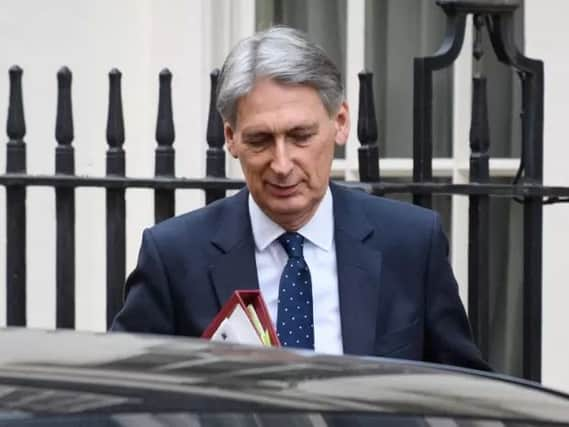Reversing Brexit would have '˜significant' impact on UK economy


In a report underlining the UK’s sluggish growth since last year’s referendum, the Organisation for Economic Co-operation and Development (OECD) warned of uncertainty around the chances of securing a vital trade deal with the EU.
It warned that Britain's economy could be crippled by a “disorderly Brexit” if negotiations in Brussels fail, which would send the pound tumbling further and result in a downgrading of the UK’s credit rating.
Advertisement
Hide AdAdvertisement
Hide Ad"Business investment would seize up, and heightened price pressures would choke off private consumption. The current account deficit could be harder to finance, although its size would likely be reduced," the report warned.
It also highlighted the risk of the UK breaking up if Scotland and Northern Ireland reconsider their future in the Union as a result of Brexit.
OECD secretary general Angel Gurría warned that rising inflation sparked by a falling pound would “choke off” spending and investment, and said the government should avoid creating new trade barriers between the UK and EU.
"It will be crucial the EU and the UK maintain the closest economic relationship possible,” Mr Gurría said.
Chancellor Philip Hammond insisted the government’s approach to Brexit talks was providing much-needed certainty for businesses.
"[By] delivering a time-limited transition period, avoiding a disruptive cliff-edge exit from the EU, we can provide greater certainty for businesses up and down the UK, and across the European Union,” Mr Hammond said.
Liberal Democrat deputy leader Jo Swinson said the report vindicated her party’s call for a new referendum offering an “exit from Brexit.”
“Brexit has already caused the UK to slip from top to bottom of the international growth league for major economies,” Ms Swinson said.
Advertisement
Hide AdAdvertisement
Hide Ad“This will only get worse if the government succeeds in dragging us out of the single market and customs union, or we end up crashing out of Europe without a deal.”
Labour shadow Chancellor John McDonnell said the report painted a “damning picture” of the government’s management of the economy and of Brexit negotiations.
“If this weak Tory government continues to refuse to act then the next Labour government will implement the plan needed to build an economy that works for the many, not the few,” Mr McDonnell said.
The latest UK economic survey by the OECD is currently projecting economic growth of just 1% in 2018, a forecast that would worsen considerably without a free trade deal.
"In case Brexit gets reversed by political decision (change of majority, new referendum, etc), the positive impact on growth would be significant," the report said.
The OECD admitted that the outcome of Brexit talks could "prove more favourable" than assumed, but stressed that this would require "an ambitious EU-UK agreement and a transition period to allow for adjustment to the new agreement".
"Meantime, however, uncertainty could hamper domestic and foreign investment more than projected and hurt consumption even more were the exchange rate to depreciate further," it added.
Brexit has compounded the challenge of reviving labour productivity growth, which the OECD said had come to a "standstill" and made "no meaningful contribution" to UK output since 2007.
Advertisement
Hide AdAdvertisement
Hide AdThe report highlighted that labour productivity was also weakest outside of Greater London and the South East of England.
This kind of disparity between regions and workers "may lead to, or be the result of, important differences among people in terms of income and wealth, jobs and earnings, and education and skills."
"Well-being inequalities may have been one of the causes of Brexit, as less-educated workers in remote regions might have perceived to benefit less from the European project," it added.
Mr Gurría said the UK had to invest in skills, warning that its “low skilled workforce” was “like an anchor holding you back”. And he spoke out against zero-hours contracts, claiming they “put the worker at a distinct disadvantage” and said their use should be limited to “truly independent entrepreneurs”.
Responding to the OECD report, a UK Government spokesman said: “We are working to achieve the best deal with the EU that protects jobs and the economy.
“We aim to agree a Free Trade Agreement that is comprehensive and ambitious. Our £23 billion National Productivity Investment Fund which will improve our country’s infrastructure, increase research and development and build more houses.”